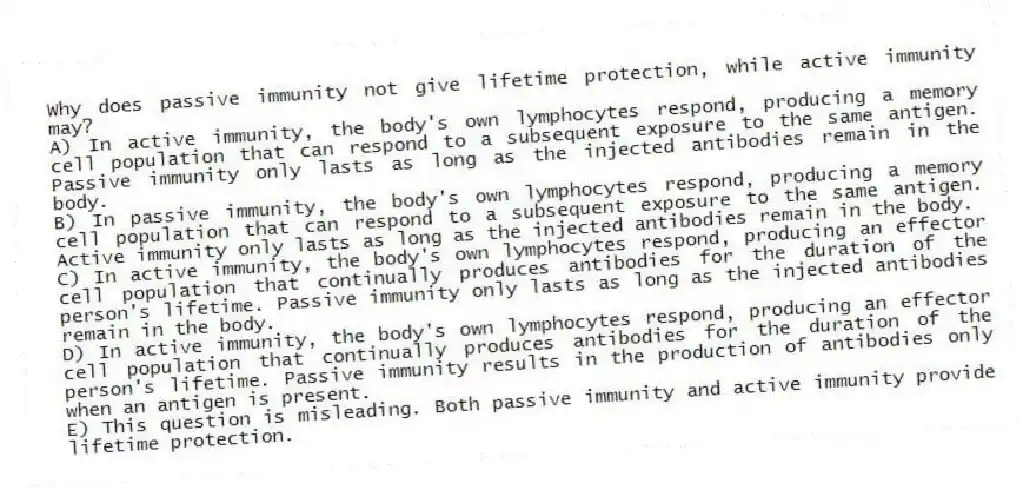
Why does passive immunity not give lifetime protection, while active immunity may?
A) In active immunity, the body's own lymphocytes respond, producing a memory cell population that can respond to a subsequent exposure to the same antigen. Passive immunity only lasts as long as the injected antibodies remain in the body.
B) In passive immunity, the body's own lymphocytes respond, producing a memory cell population that can respond to a subsequent exposure to the same antigen. Active immunity only lasts as long as the injected antibodies remain in the body.
C) In active immunity, the body's own lymphocytes respond, producing an effector cell population that continually produces antibodies for the duration of the person's lifetime. Passive immunity only lasts as long as the injected antibodies remain in the body.
D) In active immunity, the body's own lymphocytes respond, producing an effector cell population that continually produces antibodies for the duration of the person's lifetime. Passive immunity results in the production of antibodies only when an antigen is present.
E) This question is misleading. Both passive immunity and active immunity provide lifetime protection.
Correct Answer:
Verified
Q67: You are about to graduate as a
Q68: The type of immunity conferred by giving
Q69: Many inactivated vaccines contain an adjuvant, a
Q70: Select the False statement regarding artificially acquired
Q71: You are about to graduate as a
Q73: You are about to graduate as a
Q74: You explain to the parent of the
Q75: Which of the following is NOT an
Q76: The MMRV vaccine is an attenuated vaccine,
Q77: Attenuated vaccines have several advantages. Which of
Unlock this Answer For Free Now!
View this answer and more for free by performing one of the following actions

Scan the QR code to install the App and get 2 free unlocks

Unlock quizzes for free by uploading documents